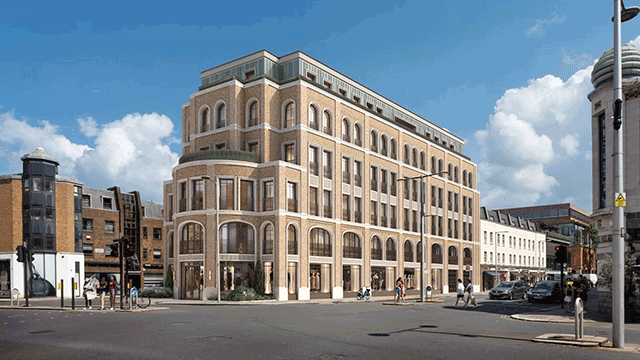Householders in a leafy suburb of south-east London have failed in their court bid to remove a set of long-forgotten restrictive covenants that are stopping them from selling their property.
The case highlights the arcane quirks of the London property market, where householders, keen to improve their investment in one of Europe’s most expensive property markets, must negotiate the hazards of leaseholds, share-of-freeholds and demise changes when seeking to build extensions and loft conversions or to get front gardens turned into parking spaces.
This often means paying a leaseholder – or, in the case of share-of-freehold, getting permission from a neighbour to make changes to a space that the neighbour doesn’t have access to.
As a result, small dwellings with a simple freehold and development potential are prized, as the only permission needed comes from the local planning authority.
This is what the owners of 141a Dunstans Road, a two-bedroom terraced house in the leafy London suburb of East Dulwich, with good transport links and situated just metres away from a popular primary school, thought when they put their house up for sale in 2017.
According to a ruling from the Upper Tribunal, their buyer dropped out of the sale when their solicitor discovered that the freehold had a number of long-forgotten restrictive covenants added to it that had been imposed almost 40 years before.
The property at 141a shares a front door with next-door neighbour 141. According to the ruling, 141 and 141a had been a single property until 1984, when the then owner divided it into two properties, sold 141a and remained in 141.
However, before selling 141a she added the following restrictive covenants to its freehold:
“(1) Not to use the premises other than as a private dwellinghouse in the occupation of a single family;
“(2) Not to keep more than one domestic pet on the premises at any one time;
“(3) Not to play any musical instrument or loud music after 11pm without the permission of the owner or occupier for the time being of the adjoining premises;
“(4) Not to alter the structure or external appearance of the property hereby transferred or to erect any walls, fences hedges or garages without the consent of the transferee or her successors in title.”
According to the ruling, the owners of both houses were unaware of the covenants until a solicitor for some prospective buyers uncovered it, leading to the sale falling though. The owners of 141a hadn’t been informed of them by their solicitors when they bought the house.
Even so, according to the ruling, the owners of 141, having been made aware of the covenants, were reluctant to agree to having them removed.
The owners of both properties took the issue to the Lands Tribunal in a hearing late last month.
The owners of 141a argued that the covenants should be altered or removed as they were too onerous.
The owners of 141 argued that the covenants weren’t unduly restrictive and are common to freehold properties.
According to the ruling, “the hearing was conducted in a spirit of friendliness and neighbourliness. The tribunal expressed the hope that this would continue whatever the outcome of this application.”
The ruling has just been published. The tribunal decided to alter the covenants, but not remove them.
“While the tribunal has considerable sympathy for the unfortunate position in which the applicants now find themselves, through no fault of their own, it can only operate within the statutory framework,” the ruling says.
“In the tribunal’s judgment, the objectives which the covenants sought to achieve in 1984, of ensuring that the owners and occupiers of No 141 would still be able to retain an acceptable level of control over activities in the adjoining property, No 141a, are still capable of attainment.
“It cannot be said that the covenants no longer serve the purposes originally contemplated of them; they still afford protection, and they remain of value, to the owners and occupiers of No 141 as the persons entitled to the benefit of the restrictions.”
However, the tribunal did order that restrictions 2, 3 and 4 be “relaxed” by adding the words “without the permission of the owner or occupier for the time being of No 141 Dunstans Road (such permission not to be unreasonably withheld)”.
“If it would be reasonable to refuse permission for more than one pet (such as two cats or two dogs or a cat and a dog), then the restriction will continue to bite; but if it would be unreasonable to refuse such permission, then the tribunal cannot see that the owners or occupiers of No 141 would suffer any injury by any consequential relaxation of the restriction,” the ruling said.
Earlier in the judgment the tribunal stated that, as there were many properties in the area with dropped curbs and loft conversions “it would not be unreasonable for any owner(s) of No 141a to wish to carry out alterations of this kind, which would be in keeping with the character of the neighbourhood.”
(1) Gary Owen (2) Heather Lynn Richards
Re: 141a Dunstans Road, East Dulwich SE22 OHD
Upper Tribunal (Judge David Hodge QC) 31 May 2019










